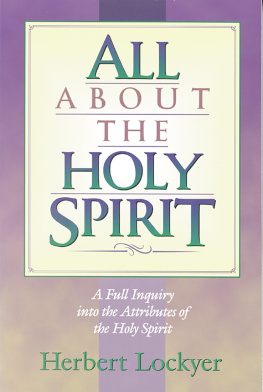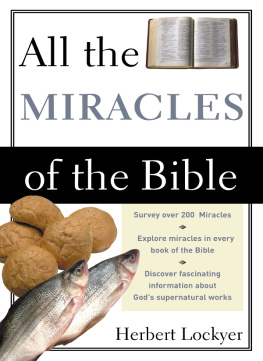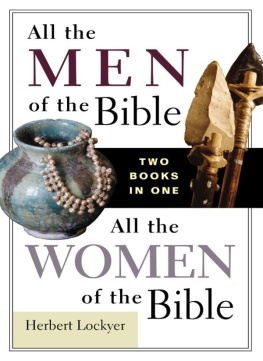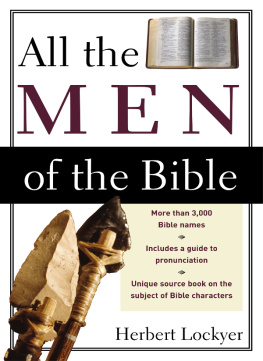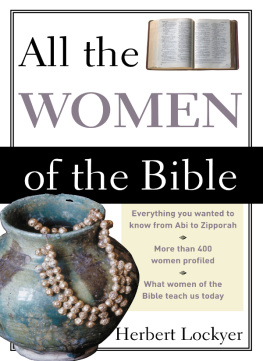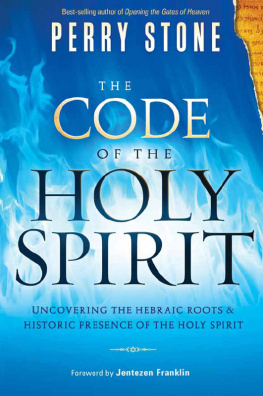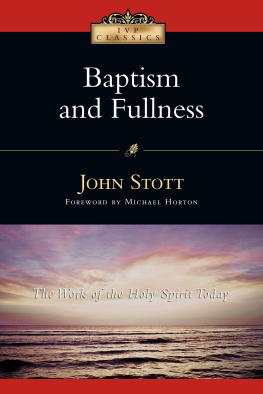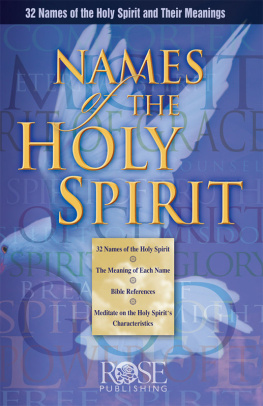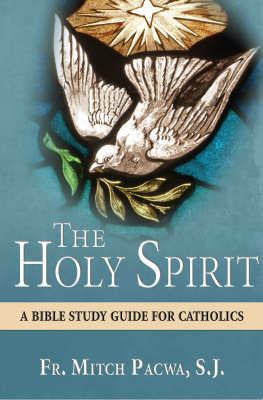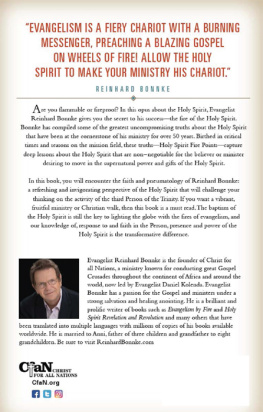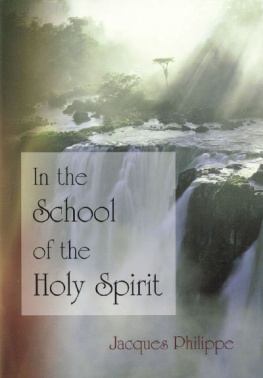Over thirty years ago the renowned Union Gospel Press of Cleveland, Ohio, kindly published this study of mine, which has been out of print for several years, under the title The Breathof God. An opportunity arose to revise and amend the book for publication under its new title, The Holy Spiritof God; sincere gratitude is expressed for permission to release and reprint the same.
Within the last half-century or so, such literature has become most extensive, so that one is embarrassed by riches when a study of the far-reaching ramifications of the Spirits ministry is undertaken. It is superfluous for me to add that I am deeply indebted to scores of writers on this theme. The volume before you constitutes a personal endeavor to express in simple terms for believers the manifold activities of God the Holy Spirit, the Author and Lord of all life.
CHAPTER ONE
Approaching the Theme
Religious teachers and writers are impressed by the fact that Christians everywhere desire a more comprehensive knowledge of the person and work of the Holy Spirit. It may be that a sense of need and insufficiency cause many to inquire. They want to understand how the Spirits fullness can be received and retained.
In many cases, misconceptions concerning the Spirit and ignorance of His work are responsible for weakness and ineffectiveness in Christian life and labor. If only the Spirit could come into His own, lives would be rich in fruitfulness and fragrant with the perfume of Christ. By realizing all that the third person of the Trinity has for us, facts of promise could become factors of power.
Approaching the theme before us, sublime and sacred as it is, we have to confess that no saint can explain fully to himself or to others the gracious operations of the Spirit. Personally, we can experience His power and witness His work in and through other lives, but our reach exceed sour grasp. Thus, any exposition of the personality and work of the Spirit is more or less imperfect because of our inability to describe our experiences correctly.
All of us are able to know with absolute certainty the facts of His indwelling presence, life-giving energy, and sanctifying power, even though our opinions as to the origin and theory of the Spirits presence within the soul may differ.
We enter upon these evangelical studies of the Spirit with the confession that the doctrine is, in many respects, mysterious. Because of our finite understanding we may have a true but incomplete grasp of it. It is a revealed fact of Holy Scripture, and as such is to be received and believed. The truth of the Spirit transcends, but does not contradict reason. The Father, the Son, and the Holy Spirit are one and only one God. Each has some characteristics which the other has not. Neither is God without the others, and each with the others is God. The Father says I, the Spirit says I. The Father loves the Son; the Son honors the Father; the Spirit testifies of the Son.
The Need of Study
Students of church history have pointed out that the twin truths of the Holy Spirit and of our Lords return were lost to the church for a long period. Although recognized, declared, and surely believed by the apostles and early fathers, they were lost to vision during the Dark Ages when the church was almost entirely Romish.
The Spirits manifold operations allied with the blessed hope now hold a prominent place in the theology of evangelical believers, thanks to the efforts of spiritually-minded teachers throughout the last 150 years.
And, it will be observed, these twin truths rise or fall together. If we deny the one, we discard the other. In his monumental volume on Christian Doctrine, Dale remarks, There are some who have not discovered that as the coming of Christ was a new and wonderful thing in the history of our race, the coming of the Holy Spirit was also a new and wonderful thing in the history of our race, and that His coming has made an infinite difference in the life of man.
It is imperative to grasp the truth of the Spirit.
Because it is a neglected truth
Although we have more volumes than ever before expounding the graces and gifts of the Spirit, I fear that such enlightenment is sadly neglected by the vast majority of Christians. A recital of the Creed there may beI believe in the Holy Ghostbut where He is unknown, or where the essentials of our faith are tampered with, His presence cannot be realized.
Professor Erdman, in his inspiring book The Holy Spirit and Christian Experience, wrote,
The Spirit cannot be where Christ is denied as redeemer, life and Lord of all. Christ is the Truth and the Spirit is the Spirit of Truth; all is personal, not abstract, ideal, and the sum and substance of material wherewith the Spirit works in Christ.... In brief, the Spirit must be silent altogether in pulpits and churches where a different gospel which is not another gospel is preached, and where unrebuked and unchecked... prevail, although in a form of godliness, the lust of the flesh, and the lust of the eyes, and the pride of life and the things which are not of the Father, but... of the world; things which are not of the new nature and spirit in which the Holy Spirit dwells and through which alone He can work and testify.... We should be warned by the history of the apostolic churches, once so full of the Spirit, but which perished from their places long ago. The same denial of Christ, the same worldliness is our danger today. All that can help us is the presence of the Spirit of Christ, and He will not work save with the Truth of Christ; and He only must dwell in the Temple of God, which temple we are.

